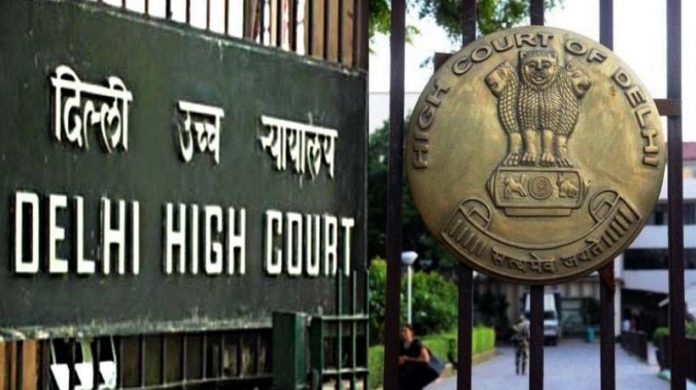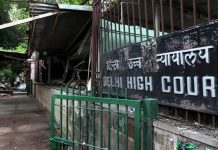This article is written by Dhananjai Singh Rana, from Amity Law School, Noida This article deals with the analysis of the important provisions of High Court Judges (condition of Service Act).
Table of Contents
Introduction
The Indian Judiciary in our nation is the primary moto of the democratic system which helps in the smooth working of the majority rules system. Judges are the principal parts of the legal executive. The appointed authorities must be proficient all together for the legal executive to be effective. Numerous renowned appointed authorities in our nation have drawn out a lot of changes through their decisions which prompted the general advancement of this nation. Judges are regarded as the source of delivery of justice in our country and citizens have certain expectations on them and look up to them for amicable and transparent dispute redressal Therefore it is important to ensure that the appointment of judges is appropriate and not one-sided. Different provisions of our Indian Constitution manage the appointment of Judges which must be followed in each part of the appointment.
Article 124 vests the power of appointment of the Chief Justice of India (C.J.I.) and the Judges of the Supreme Court on the President. The President shall by the warrant, make the appointment after consultation with such judges of the Supreme Court and the High Courts of the States, as he may deem necessary. Also, the provision speaks of after‟ consultation and not in‟ consultation. In the case of appointment of a judge other than the Chief Justice of India, the C.J.I. shall always be consulted. On a plain reading of the provision, the power of appointment vests in the President. The President, of course, means the Executive i.e. The President has the role of ensuring that the organs of the government are performing their duties in an expected manner. The C.J.I. and other such judges of the Supreme Court and the High Courts shall be consulted by the President, as he may deem necessary.
Articles 124 and 217, respectively, provide for the manner of appointment of the judges of the Supreme Court and the various High Courts. It is provided that every judge of the Supreme Court or a High Court shall be appointed by the President by warrant under his hand and seal. The persons to be consulted before such an appointment is made by the President has been provided in the said articles. The Supreme Court in the Supreme Court Advocates-on Records Association v. Union of India
Background
The Supreme Court and the High Courts as the overseers and guardians of the essential rights and opportunities of the individuals and their established rights have a great obligation. The Superior Judiciary has effectively saved and ensured the key privileges of the residents and weak gatherings against the advancements of “an energized vote based system” and for that reason, it has drawn significantly upon the Directive Principles.
Judicial activism has not gone too well with groups of democratic theorists who object to the kind of judicial activism which has tended to turn social and political processes to legal processes and obliterating the then line of demarcation between interpretation and adjudication and exhibiting an ever eager tendency to intervene in the governing process. Constitutional adjudications do have an inevitable legislative element. Judges need great wisdom and restraint in dealing with these judicial powers for ensuring that the policies are being followed and orders are obeyed. “The irreplaceable value of the power of judicial review”, said a judge “lies in the insurance which it has agreed to sacred rights that have kept up open regard for the legal executive and have allowed the quiet presence of counter-majoritarian ramifications of the legal survey and the vote based standards on which our national government rests”.
The issue identifying with the way of appointment of judges had been bantered longer than 10 years. The Constitution (Sixty-seventh Amendment) Bill, 1990 was presented on eighteenth May 1990 (ninth Lok Sabha) accommodating the institutional structure of the National Judicial Council or prescribing the appointment of judges to the Supreme Court and the different High Courts. Further, it gives the idea that recently there is a development all through the world to move this capacity away from the restrictive fiat of the leader and including some institutional system whereunder discussion with the legal executive at some level is accommodated before making such provisions.
The appointment of counsel in some structure is now accessible in Japan, Israel, and the UK. The Constitution (Sixty-seventh Amendment) Bill, 1990 accommodated a collegium of the Chief Justice of India and two different adjudicators of the Supreme Court for making provisions to the Supreme Court. Notwithstanding, it is beneficial to have a participatory mode with the interest of both the chief and the legal executive in making such suggestions. The Commission proposes the piece of the Collegium which gives due significance to and accommodates the viable investment of both the chief and the legal wings of the State as a coordinated plan for the hardware for the appointment of judges. This Commission, appropriately, suggests the foundation of a National Judicial Commission under the Constitution.
Manner of appointment
The National Judicial Commission for the appointment of judges of the Supreme Court will contain:
- The Chief Justice of India: Chairman
- Two senior-most appointed authorities of the Supreme Court: Member
- The Union Minister for Law and Justice: Member
- One prominent individual designated by the President in the wake of counselling the Chief Justice of India: Member The proposal for the foundation of a National Judicial Commission and its organization is to be treated as necessary on account of the need to safeguard the freedom of the legal executive.
What do the services include?
“Actual service” incorporates –
- time spent by a Judge in the presentation of such different capacities as he may, in line with the President of India, embrace to release;
- leaves, barring whenever during which the Judge is missing without leave;
- joining time on the move from a High Court to the Supreme Court or starting with one High Court then onto the next or from the Supreme Court to a High Court;
- time spent by a Judge working as a Judge of a previous Indian High Court;
- time spent by a Judge to go to the sittings of the Supreme Court as a specially appointed Judge under Article 127 of the Constitution; and
- leave (barring whenever during which the Judge was missing on leave) taken by a Judge as a Judge of a previous Indian High Court;
Service
Kind of leaves permitted are:
- leave on full remittances (counting drove leave on half recompenses into leave on full stipends on the clinical authentication); or
- leave on half recompenses; or
- leave somewhat on full recompenses and incompletely on half remittances.
- Computation of leave recompenses.
- A leave account will be saved for each Judge indicating the measure of leaving because of him regarding leave on half remittances.
Calculation of leave allowances
The expenses and allowances a judge is entitled are:
One-fourth of the time spent by him on genuine appointment where the Judge, on account of his having been confined for the presentation of obligations not associated with the High Court, can’t appreciate any excursion which he would somehow or another have been qualified for appreciate had he not been so kept as remuneration for the leave not approved, a period equivalent to two-fold the period by which the leave appreciated by him at whatever year misses the mark regarding one month; and where the Judge had, before he was delegated such held any pensionable post under the Union or a State, the time of leave earned by him in the said provision.
Benefits to judge
Subject to the provisions of this Act, each judge will, on his retirement, be paid benefits following the scale and provisions in Part I of the First Schedule:
Given that no such annuity will be payable to a Judge except if:
- he has finished at the very least twelve years of administration for the annuity; or
- he has achieved the age of sixty-two years; or;
- his retirement is therapeutically confirmed to be required by sick wellbeing:
Provident Fund
Every Judge will be qualified for buy into the General Provident Fund (Central Services): Provided that a Judge who has held some other pensionable common post under the Union or a State will keep on buying into the provident fund to which he was buying in before he was selected a Judge:
Store Linked Insurance scheme
The Deposit Linked Insurance Scheme for now in power under the General Provident Fund (Central Services) Rules, 1960, will apply to each Judge, regardless of whether he buys into the General Provident Fund (Central Services) or some other Provident Fund alluded to in area 20.
Making a trip stipends to a Judge. – Every Judge will get such sensible stipends to repay him for costs caused in going on the job inside the region of India and will be managed such sensible offices regarding going as may, now and again, be endorsed.
The office of lease free houses:
(1) Every Judge will be entitled without instalment of the lease to the utilization of an official habitation adhering to such standards as may, now and again, be made for this benefit.
(2) Where a Judge doesn’t benefit himself of the utilization of an official home, he might be paid each month a stipend identical to a measure of twenty-four for every centum of the pay which will be expanded at the pace of-
(a) twenty-seven for each centum, when Dearness Allowance crosses twenty-five for each centum; and
(b) thirty for each centum, when Dearness Allowance crosses fifty for each centum.
Movement offices
Every Judge will be qualified for a staff vehicle and [two hundred litres of fuel each month or the real utilization of fuel whichever is less.
Sumptuary stipend
The Chief Justice and every one of different Judges of each High Court will be qualified for a sumptuary stipend of [thirty-four thousand] rupees for each month and twenty-7,000 rupees for each month individually.
Clinical office Every resigned Judge will, with impact from the date on which the High Court Judges (Conditions of Service) Amendment Act, 1976, gets the consent of the President to be qualified for himself and his family, to indistinguishable offices from regards clinical treatment and on indistinguishable conditions from a resigned official of the Central Civil Services, Class I and his family, are entitled under any standards and requests of the Central Government for the present in power.
notwithstanding anything in sub-section (1) however subject to such conditions and limitations as the Central Government may force a resigned Judge of the High Court for a State may profit, for himself and his family, any offices for a clinical treatment which the Government of that State may stretch out to him.
Conclusion
It is feasible for the administrations to have a litigation policy‟ coordinated towards a decrease of government suit and security of open enthusiasm by preventive systems. For example, in common situations when a notification under Section 80 CPC is given, the issue ought to be completely and deliberately inspected rather than the current inclination of giving a normal account as a record without the use of the brain, that “the compromised suit might be anticipated.” The documenting of claims regardless of the value of the case ought to be maintained a strategic distance from. Offers are recorded precisely independent of the benefits just to stay away from claims, frequently outlandish, of ill-advised intentions when a choice which influences the interests of the Government is permitted to expect a conclusion.
The best resource of the police in the examination of violations and maintenance of law and order is the certainty of the individuals. Today, such open certainty is at the least ebb. The police are progressively losing the advantage of this benefit of open certainty. Professional skills in examinations originate from open participation. If police are viewed as violators of law themselves or on the off chance that they misuse their forces for terrorizing and blackmail, the general population builds up a mentality of repugnance and the grave obligations and duties that the police shoulder becomes more cumbersome and troublesome. All together that resident’s trust in the police organization is upgraded, the police organization in the locale ought to intermittently survey the measurements of the considerable number of captures made by the police in the area and see as to in what number of the cases where captures were made finished in the recording of charge-sheets in the court and what number of the captures were eventually ended up being superfluous.
References
LawSikho has created a telegram group for exchanging legal knowledge, referrals and various opportunities. You can click on this link and join:
 Serato DJ Crack 2025Serato DJ PRO Crack
Serato DJ Crack 2025Serato DJ PRO Crack











 Allow notifications
Allow notifications


